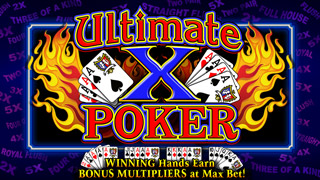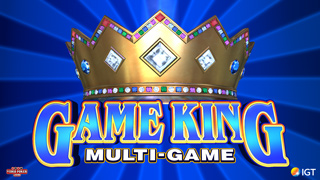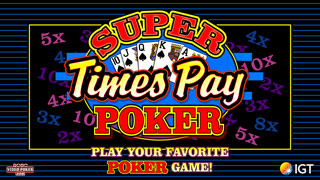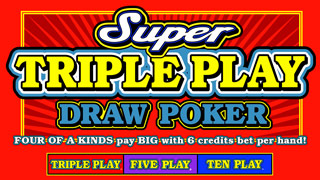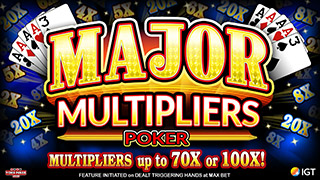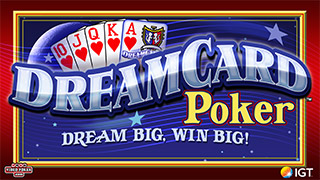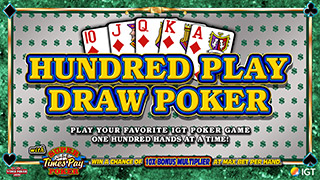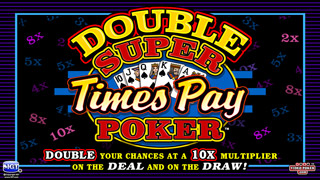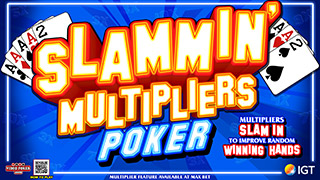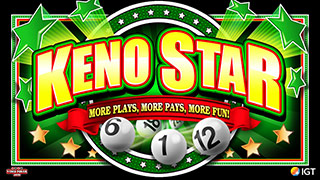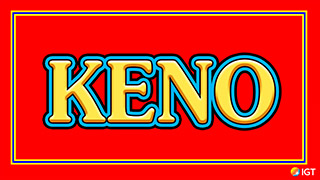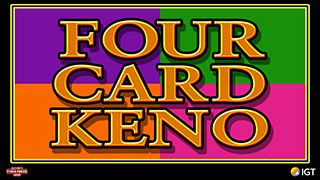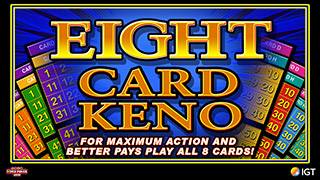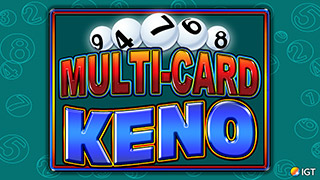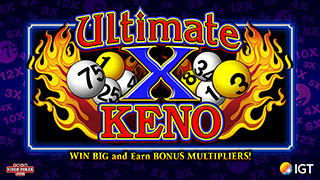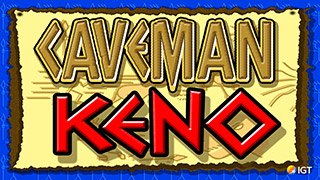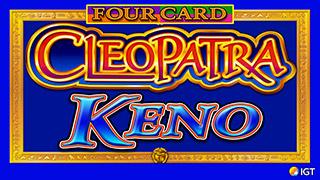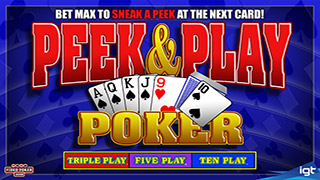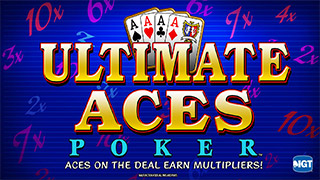Three times in a row
-
jm002546
- Senior Member
- Posts: 398
- Joined: Tue Oct 02, 2007 9:13 am
Three times in a row
Dealt and held QJh 3 times in a row. Pretty rare?
-
Webman
- Video Poker Master
- Posts: 5219
- Joined: Wed Jul 13, 2005 5:00 pm
Yes, rare. Unless you have this happen all the time. Then it's not rare.
-
New2vp
- Video Poker Master
- Posts: 1881
- Joined: Mon Sep 11, 2006 4:02 am
If playing say, 9/6 Jacks or Better, after having a hand when QJ suited was the appropriate hold, the probability of being dealt QJ in the same suit twice more in a row (with that again being the appropriate hold) is (6222/2598960)^2. The odds work out to about 174,476 to 1.It is more likely that your next hand will end up in a royal flush of a particular suit.
-
spxChrome
- VP Veteran
- Posts: 819
- Joined: Tue Nov 07, 2006 9:21 pm
I saw a lady hit Aces 3 times in a Row what are the odds of that? First she held 2 then drew 2, next hand got them dealt, next hand held 1 got the other 3. Help me out New2vp I always wondered what those odds would be
-
Eduardo
- Video Poker Master
- Posts: 2967
- Joined: Thu Aug 31, 2006 7:19 pm
I saw a lady hit Aces 3 times in a Row what are the odds of that? First she held 2 then drew 2, next hand got them dealt, next hand held 1 got the other 3. Help me out New2vp I always wondered what those odds would be
Both rare, and well done.
-
jm002546
- Senior Member
- Posts: 398
- Joined: Tue Oct 02, 2007 9:13 am
If playing say, 9/6 Jacks or Better, after having a hand when QJ suited was the appropriate hold, the probability of being dealt QJ in the same suit twice more in a row (with that again being the appropriate hold) is (6222/2598960)^2. The odds work out to about 174,476 to 1.It is more likely that your next hand will end up in a royal flush of a particular suit.
Thanks. It seemed very unusual and I guess it was.
-
New2vp
- Video Poker Master
- Posts: 1881
- Joined: Mon Sep 11, 2006 4:02 am
I saw a lady hit Aces 3 times in a Row what are the odds of that? First she held 2 then drew 2, next hand got them dealt, next hand held 1 got the other 3. Help me out New2vp I always wondered what those odds would be Ok, spx,Let's go with 9/6 DDB so the aces will be worth something. Computer-perfect strategy implies odds of 4251 to 1 for a final hand of quad aces. For your next 3 hands to result in quad aces (with or without the kicker), the odds are 77,886,998,327 to 1 (78 Billion); probably not likely to happen in quite a few lifetimes of play.Most of the time, if the question is phrased as the odds of following up one set of quads with two more, we get 18,081,533 to 1 (18 Million); probably not likely to happen in my own lifetime of play.Good luck on remembering the numbers the next time you want to tell the story!
-
Webman
- Video Poker Master
- Posts: 5219
- Joined: Wed Jul 13, 2005 5:00 pm
Another fun fact... there are 19,933,230,517,200 possible deal/draw combinations for every hand in video poker.So every single hand you play, you're beating amazing odds... it was a 1/19933230517200 chance, not likely to happen in your lifetime! (okay, so if you play your cards right, it's much less with only 2,598,960 possibilities on the deal. Still a 1 in 2598960 shot!)You're much more likely to end up with a royal flush than you are to start with 2h 6s 9d 4c Jc
-
spxChrome
- VP Veteran
- Posts: 819
- Joined: Tue Nov 07, 2006 9:21 pm
thanks and it was 8/5 db on an old faded screen burned IGT box. They had to come fill the hoper with buckets of big $1 coins each time she did guess that is why it sticks out. either way
-
New2vp
- Video Poker Master
- Posts: 1881
- Joined: Mon Sep 11, 2006 4:02 am
Another fun fact... there are 19,933,230,517,200 possible deal/draw combinations for every hand in video poker.Your overall point that every possible deal/draw combination is amazingly unlikely before any cards are dealt and drawn is spot on. And nothing below disputes that point. However, the number, though often used by various experts, is a bit misleading.There are a lot of deal/draw combinations, but the number referenced is something other than combinations and is about 87 times too big; I would submit that a figure like 228,408,175,488 is more appropriate as a count of the number of deal/draw combinations in 9/6 Jacks or Better.I will acknowledge that experts like the Wizard of Odds call this 19.9 quadrillion figure the total number of combinations for a 52-card game. Instead of calling it "combinations," since that term has a precise meaning to statisticians, it should be named something else (maybe like "relative weighted index" or "total weighted sum"), as explained below.If we look at 9/6 Jacks or Better, we can divide the 2,598,960 deal combinations up based on how many cards computer-perfect strategy says we should draw: 19,488 Pat Hands (Drawing none; I've included quads here) 292,176 Hold 4 - Draw 1 147,528 Hold 3 - Draw 21,651,440 Hold 2 - Draw 3 403,968 Hold 1 - Draw 4 84,360 Hold 0 - Draw 5(If I didn't make any mistakes, these total to 2,598,960)No matter how many cards we draw, we are drawing from a deck of the remaining 47 cards, so we will have the following number of draw combinations, depending on how many cards we draw: 47C0 = 1, 47C1 = 47, 47C2 = 1081, 47C3 = 16215, 47C4 = 178365, or 47C5 = 1533939.If we multiply these out, we get: 19,488 x 1 = 19,488
292,176 x 47 = 13,732,272
147,528 x 1081 = 159,477,768
1,651,440 x 16215 = 26,778,099,600
403,968 x 178365 = 72,053,752,320
84,360 x 1533939 = 129,403,094,040These total to 228,408,175,488 and represent all the deal/draw combinations that you can get by using computer perfect 9/6 Jacks or Better strategy.So, where does the other number come from? A problem in using the combinations that I have counted above is that they are not all equally likely. Thus, some weighting is necessary if an expert (or video poker software) is to use them to compute expected values, variances, or other numerical descriptions.The probability of each final hand combination when tossing all 5 cards is 1/1533939, whereas the probability of the ONLY final hand combination when keeping all 5 cards is 1. So, e.g., pat hands require a much larger weight than a deal/draw combination that involves tossing all 5 cards.Software must WEIGHT the combinations above by their relative probabilities. WinPoker Game Analysis, FrugalVP Machine Statistics, and WolfVP Game Statistics show their calculations by using the exact probabilities which requires the use of decimal fractions to determine their total number of hands, ending up being 2,598,960 as shown below: 19,488 x 1 = 19,488 x 1/1 = 19,488
292,176 x 47 = 13,732,272 x 1/47 = 292,176
147,528 x 1081 = 159,477,768 x 1/1081 = 147,528
1,651,440 x 16215 = 26,778,099,600 x 1/16215 = 1,651,440
403,968 x 178365 = 72,053,752,320 x 1/178365 = 403,968
84,360 x 1533939 = 129,403,094,040 x 1/1533939 = 84,360When these products use these figures they will divide by the total weighted sum, in this case, 2598960 to get the EV.One might think that it might be a good idea to multiply each of these by 1533939 times the probability so that the least likely combinations (from the Draw 5's) will have a weighting factor of ONE, but 16215 and 178365 do not divide evenly into 1533939, so we would have the Draw-3 combinations multiplied by 94.6 and the Draw-4 combinations multiplied by 8.6. With some computers, using these non-integers might lead to some slightly worse rounding errors (though I doubt that this is very significant when using double precision), so choosing a number that is 5 x 1533939 = 7669695 as the weighting factor yields all numbers as integers.So at Web sites like The Wizard of Odds and VPGenius, we would see the number referenced by Webman.
19,488 x 1 = 19,488 x 7669695/1 = 149,467,016,160
292,176 x 47 = 13,732,272 x 7669695/47 = 2,240,900,806,320
147,528 x 1081 = 159,477,768 x 7669695/1081 = 1,131,494,763,960
1,651,440 x 16215 = 26,778,099,600 x 7669695/16215 = 12,666,041,110,800
403,968 x 178365 = 72,053,752,320 x 7669695/178365 = 3,098,311,349,760
84,360 x 1533939 = 129,403,094,040 x 7669695/1533939 = 647,015,470,200totaling to 19,933,230,517,200. At the end, to calculate EV, we must again divide by the total weighted sum, in this case, 19,933,230,517,200It really doesn't matter what number is used as a multiplier (if you do not consider rounding error) just so long as you divide by the same number later in the calculations, but we shouldn't think that choosing a different number to use as a multiplier causes there to be a greater number or a fewer number of combinations or to affect the probability of attaining any combination.Pleasant dreams...if you made it this far without already falling asleep!



